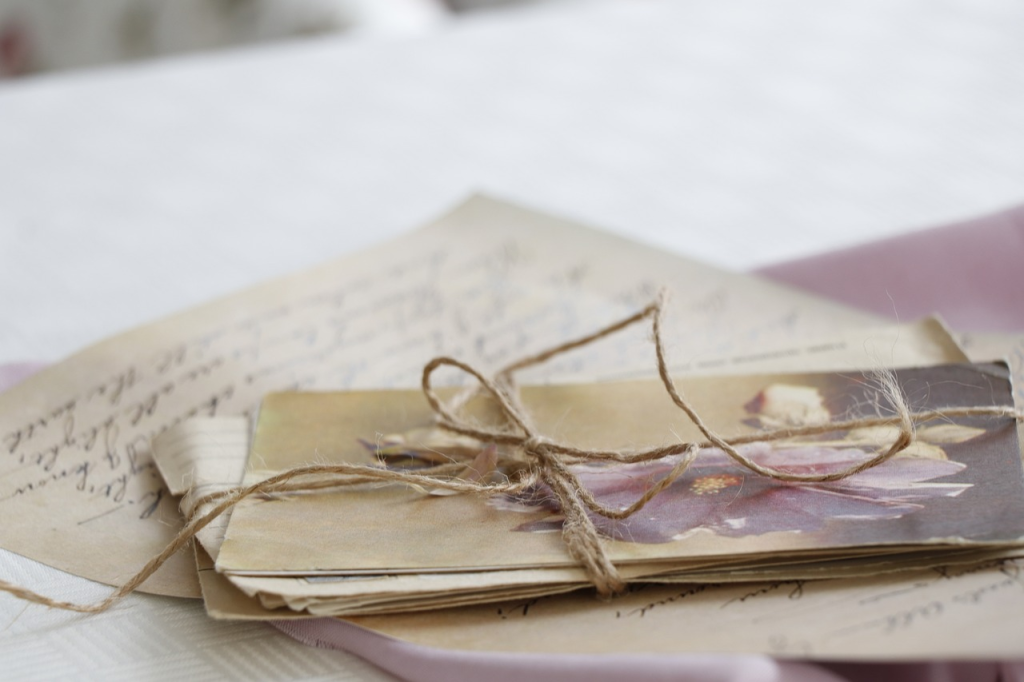-
New data from Moonpig has revealed Brits’ habits and sentiments towards keeping greeting cards sent by their loved ones
-
Twice as many men than women considered themselves to be nostalgic
-
More than one in ten men have kept a greeting card because it features one of their hobbies or interests
-
Men are twice more likely to keep a greeting card from their childhood sweetheart than women
There are many ways in which we keep loved ones close to our hearts; whether that be through creating photo albums or keeping greeting cards, and research has shown that the tradition of keeping mementos to remind us of loved ones dates back more than 2,000 years.
With this in mind, leading online greeting card experts Moonpig, conducted a survey to uncover modern day habits Brit’s have when it comes to keeping greeting cards from our loved ones as a keepsake.
Almost half of Brits consider themselves both sentimental and nostalgic
The survey, which polled over 2,000 people, revealed whether Brits view themselves as sentimental and nostalgic. The survey found that almost half (49%) of Brits consider themselves both sentimental and nostalgic. Additionally, a further 15% consider themselves nostalgic and 13% sentimental.
Almost two-thirds (62%) of 25-34 year olds consider themselves both sentimental and nostalgic in comparison to only 42% of 35-44 year olds. Despite not always being known for expressing their emotions as much as women, men were found to be the most nostalgic gender with twice as many men (20%) admitting they consider themselves to be nostalgic compared to less than one in ten (9%) women.
Brits treasure cards the most if they were sent by their loved ones
Moonpig found that two-thirds of Brits (66%) choose to keep cards because they were sent by a loved one, while just over half (54%) said it was because of the message inside, and 45% said it was because they had received it to celebrate a milestone.
Unsurprisingly, women were found to be more sentimental than men, with over two-thirds (71%) of women admitting they would keep a card because it was sent by a loved one in comparison to only 58% of men. Men, however, are more than twice (12%) as likely than women (5%) to keep a card because it features one of their favourite hobbies or interests.
Sarah-Jane Porter, Moonpig’s Global Design & Licensing Director comments: “There are many reasons why we keep cards given to us by specific loved ones. Whether that be because we value the relationship that we have with that person or because they are no longer with us. Either way, greeting cards are always bought with the recipient in mind, and many of us treasure our cards because we know how much consideration has been put into them.”
Emma Loker, Psychotherapeutic Counsellor and founder of MindWrite, a mental health writing agency, has provided insight into why we keep greeting cards sent by loved ones: ‘While we may not be consciously aware of the significance of how our loved one’s personality affects their choice of cards, something within us knows. As a result, the card becomes an extension of the person, which makes it dear to us.’
Almost one in six people have kept cards from their ex-partners
Not only did the study uncover the occasions that we most often have keepsake cards from but also which loved ones we are most likely to keep cards from, and found that men are more likely to keep a card from an ex-partner. One in six (16%) men have kept a card from an ex in comparison to only one in seven (13%) women.
Men are twice as likely to keep a card from their childhood sweetheart
Similarly, Moonpig also found that men are twice more likely to keep a greeting card from their childhood sweetheart with 12% having kept one in comparison to only 6% of women.
The research also found that over two-thirds of Brits from the East Midlands (69%) have kept cards from their partners in comparison to a third of Brits from Northern Ireland (34%). Londoners and Brits from the South East of England are most likely to keep a card from their ex-partner with 24% and 22% respectively.
Emma Loker comments on why we keep greeting cards despite no longer having a relationship with the sender: ‘Greeting cards form a bridge between people which can make us feel connected, even when those relationships have passed. What’s more, as greeting cards are a symbol of previous affection and warmth, they trigger a sense of nostalgia. As we crave the positive emotions we once felt, greeting cards can be a powerful reminder of times passed.’
Almost three-fifths of Brits have kept a greeting card for more than 10 years
The study not only looked into why Brits have card keepsakes but also how long they keep them, uncovering that a staggering 58% of people have kept a card for over 10 years.
The research found that women (67%) are more likely than men (47%) and non-binary people (40%) to have kept their greeting cards for over 10 years.
However, more than one in six (16%) of 18 to 24-year-olds have no keepsake cards older than a year, something which could be due to the younger generation being more active on social media where some express their well wishes.
Emma Loker adds: ‘Greeting cards that go beyond the obligatory “happy birthday” or “congratulations” and offer up a few warm words or a reflection on the year passed are most likely to be kept for long periods of time. These take us right back to a positive time in our lives, which allows us to reflect on where we’ve been and where we are now.’



